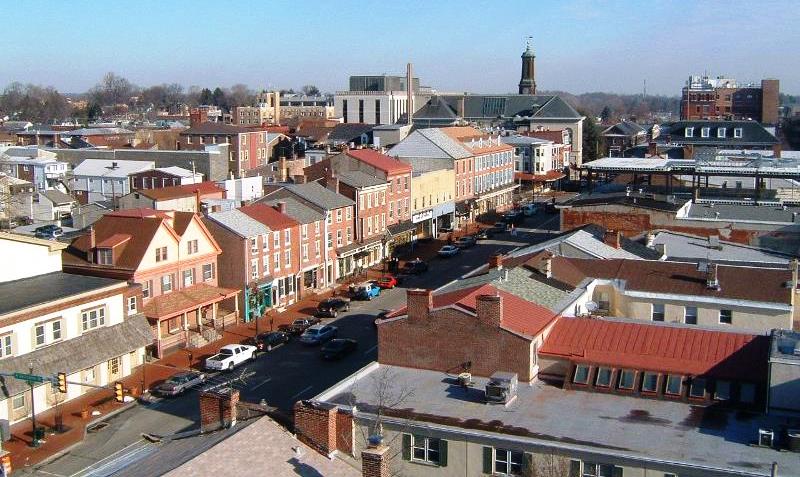On December 7, 2020, Pennsylvania Governor Tom Wolf announced the approval of $36 million in funding through the Neighborhood Assistance Program (NAP) to support 214 community revitalization projects across the state.
“The Neighborhood Assistance Program has historically been a valued resource for communities across Pennsylvania, and that is true now more than ever,” said Governor Wolf. “This has been a challenging year for all of us, and the projects we are supporting today will help us grow stronger and more resilient in 2021 and beyond.”
By providing tax credits to businesses that donate capital, NAP encourages private sector investment into distressed communities to support projects that address neighborhood and community problems.
NAP can be used for projects in categories including affordable housing, community services, crime prevention, education, job training, charitable food, blight, special population issues, veteran’s initiatives, and long-term community revitalization.
This year, the program also provided for COVID-19 and social justice related assistance. In recognition of the unprecedented level of challenges these events posed for residents of the commonwealth, a special emphasis was placed upon and priority was given to projects that sought to address critical issues related to the pandemic, its aftermath and recovery, social justice and support for policy changing movements, and improving opportunities for marginalized populations.
The funding will support the following:
- Twenty community investments in the central region: One project in Clinton County will help residents of distressed areas by renovating a 4,800-square-foot “COVID Relief” building to provide food distribution services in Clinton and Lycoming counties. This property will provide the space and security needed to provide services to senior citizens and other high-risk, vulnerable populations;
- Eighty community investments in the southwest region: One project in Washington County will support the City Mission Vocational Training Program as it seeks to purchase an additional clothing recycling baler and 35 additional large clothing collection bins. This project will provide work readiness/job training to approximately 60 residents per year, will remove approximately 300,000 pounds of textile waste from the county waste stream, and will provide a lasting, sustainable income to fund City Mission’s programs and services for the homeless;
- Fifty community investments in the southeast region: One project in Chester County will provide 20 vulnerable families with access, advocacy, and education to equip them to thrive in safe, affordable, stable housing. The project will specifically serve families whose living conditions have become increasingly unhealthy and/or unsafe and who would have been required to make a choice between food or medical and other expenses. The project’s multi-faceted approach to social justice through housing stability will go beyond simply placing families in a new home, as it will also include 160 hours of education and advocacy;
- Eleven community investments in the northeast region: One project in Lackawanna County will enhance the business district of the Cedar Avenue Corridor by instituting an incubator for small businesses, offering entrepreneurship and leadership skills to the new immigrant community, and expanding the Farmers Market. The market will bring fresh foods to a neighborhood that has been categorized as a food desert;
- Thirty-two community investments in the northwest region: One project in Erie County will support an early learning and intervention program that helps underserved children thrive through increased kindergarten readiness and literacy development. It prioritizes social justice issues in a compassionate environment that fosters acceptance, celebrates diversity, and builds empathy; models literacy-building techniques for teachers; and supports children at the highest risk of school failure; and
- Twenty-one community investments in the Lehigh Valley region: One project in Montour County will help businesses re-evaluate value proposition, plan for re-opening safely for employees and customers, recover during a recession, and remain resilient in the future. These small businesses in rural counties have not only felt traumatic impacts of COVID-19 but have also traditionally underutilized these forms of assistance. This project will address inherent social justice issues by recognizing the disproportionate impact the pandemic has had on historically disadvantaged populations, as well as systematic unequal access to capital and other resources in the business community, and will proactively engage community leaders and social justice activists in confronting these issues.
The new approvals raise the total amount of funding under the Wolf administration to nearly $138 million in NAP funding supporting 908 projects statewide. The investment will result in more than $20.3 million in additional funds leveraged through corporate contributions.
“The Neighborhood Assistance Program demonstrates what is best about Pennsylvania—our critical partnerships, our commitment to community, and our tremendous spirit of giving,” said Department of Community and Economic Development (DCED) Secretary Dennis Davin. “These investments are a promise to our communities that together, we will overcome our current challenges and build a better future for everyone who calls our commonwealth home.”
The program has five main components: The Neighborhood Assistance Program (NAP), Special Program Priorities (SPP), the Neighborhood Partnership Program (NPP), the Charitable Food Program (CFP), and the Enterprise Zone Program (EZP).
Photo of downtown West Chester, Pennsylvania (Chester County) is by Zoewscott via Wikipedia.

